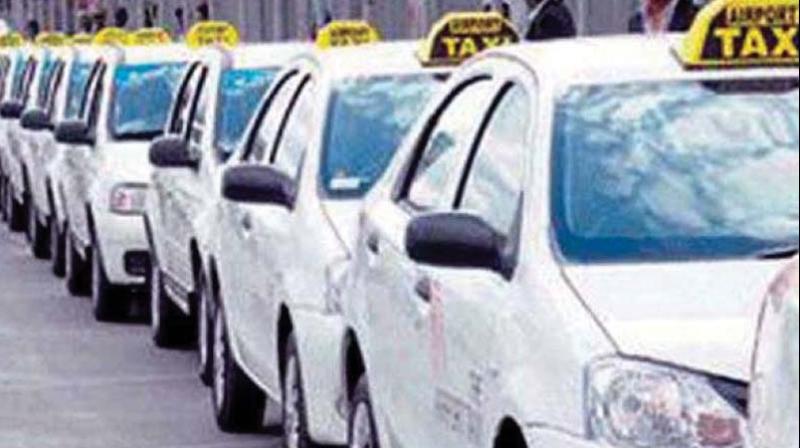Bengaluru: Central panel bats for shared mobility
Committee on taxi policy guidelines calls for use of digital technology to grant permits online.

Bengaluru: The Central government's committee on taxi policy guidelines has stressed on shared mobility over private vehicle ownership to reduce congestion and pollution.
The committee pointed out that the respective states should facilitate unhindered grant of permits for City Taxi and All India Permit (AITP) without any restrictions on numbers.
In order to reduce delays in granting permits, the committee has called for use of digital technology to grant permits online and also allow online conversion of compliant personal vehicles to commercial taxis on payment of requisite charges.
With regards to pricing the committee has called for range bound dynamic pricing to effectively match demand and supply. It is felt that the maximum tariff may be permitted up to three times the minimum tariff.
To increase the availability of taxis during the night time, the committee recommended that maximum tariff may be allowed up to four times that of minimum tariff from 12 midnight to 5 am. This would ensure adequate supply during peak hours and at night.
Cab aggregators
The cab aggregators may be asked to provide the minimum fare that would be charged from the customers and the State Transport Department may fix a multiplier to cap the maximum fare. The committee felt this would help in meeting the peak load requirements of the taxi users.
It further recommends that the Aggregators should have a physical presence in the respective State of operations. They should provide a grievance redressal mechanism and have an emergency response centre to handle SOS alerts by passengers. The App should also have adequate safety features for the passengers such as sharing the ride details.
Bike sharing
The committee also wants states to promote bike sharing and e-rickshaws for last mile connectivity.
The committee felt the policy guidelines would help in healthy growth of the taxi industry; reduce congestion, pollution in cities and provide safety to passengers.
It also called for periodical review of these guidelines to keep pace with the technology and innovations in the taxi industry.
Niti Aayog on min tariff, surge pricing
The concept of fixing a minimum tariff for taxis has not been supported by Niti Aayog on account of lack of precedent, legal considerations and problems associated with enforcement. They observed that any law to fix a minimum fare shall be struck down by Court and it would also be difficult to prosecute or penalise any taxi operator if they were charging below the minimum fare. Enforcement of minimum tariff could promote 'inspector raj' and encourage corruption.
The Aayog felt that there should not be any cap on the surge price, just as there should be no lower floor price. Market competition should decide the price levels.
However, in order to protect the consumers during emergency situations, there can be a clause to suspend or cap surge pricing during heavy rains, floods or any other emergency situation.

